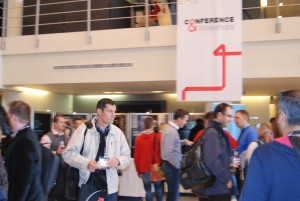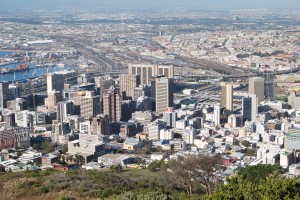 We < all know that there have never been as many people on the planet as there are now, but here are some mind-boggling statistics to put our numbers into perspective:
In the 17th Century there were half-a-billion people. By the beginning of the 19th Century this figure had doubled to one billion. By 1940 there were three billion people and at the end of the last century, despite the attrition of a world war and a number of regional conflicts, there were six billion people. Every year we are adding 80 million people to the global population, the equivalent of 10 New York cities, which by 2030 is likely to take us to almost eight-and-a-half billion people. And by the half-century, within just two generations, there could be nearly 10 billion people on the planet.
We < all know that there have never been as many people on the planet as there are now, but here are some mind-boggling statistics to put our numbers into perspective:
In the 17th Century there were half-a-billion people. By the beginning of the 19th Century this figure had doubled to one billion. By 1940 there were three billion people and at the end of the last century, despite the attrition of a world war and a number of regional conflicts, there were six billion people. Every year we are adding 80 million people to the global population, the equivalent of 10 New York cities, which by 2030 is likely to take us to almost eight-and-a-half billion people. And by the half-century, within just two generations, there could be nearly 10 billion people on the planet.
 Until the modern era, less than 3% of the world’s population lived in communities of 5000 people. However, in 2008 the global urban population exceeded the rural one for the first time in history and today half of the world’s people live in urban areas with nearly one-quarter living within 100 km of the coast and 13% living less than 10 metres above sea level.
Until the modern era, less than 3% of the world’s population lived in communities of 5000 people. However, in 2008 the global urban population exceeded the rural one for the first time in history and today half of the world’s people live in urban areas with nearly one-quarter living within 100 km of the coast and 13% living less than 10 metres above sea level.
By 2025 the number of urban dwellers is expected to increase to 60% or five billion people and by 2050, 70% of the global population will be urbanised, most of the urban demographic transformation taking place in Asia and Africa (by 2050 one-third of all urban dwellers will be concentrated in Asia.) An estimated 62% of new development will consist of slums. Such wholesale urbanisation will drastically alter the world’s physical landscape, with new cities being spawned and older ones abandoned. Urban land-use and land-cover changes will also have considerable impacts on climate brought about through phenomena such as the urban heat island effect.
 Unless we take care to preserve terrestrial and marine environments our children’s children could have an “extinction of experience”, meaning that tomorrow’s children could be denied the wonder of connecting to and interacting with the natural world. This disconnection would render future generations increasingly out of touch with what is wild and free.
Unless we take care to preserve terrestrial and marine environments our children’s children could have an “extinction of experience”, meaning that tomorrow’s children could be denied the wonder of connecting to and interacting with the natural world. This disconnection would render future generations increasingly out of touch with what is wild and free.